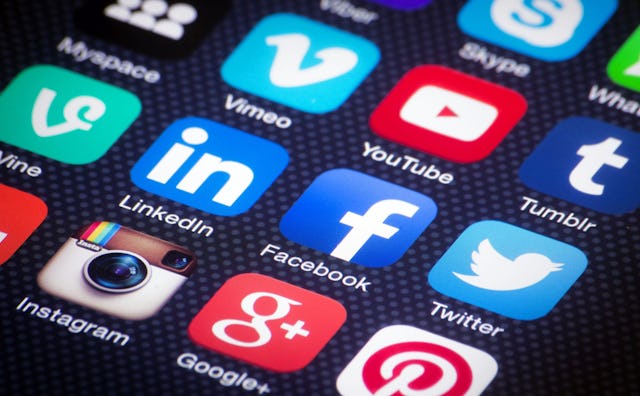Growing Up On Social Media...The Hard Way

Facebook. Twitter. Instagram. Pinterest. Flickr. Google+. This morning, another Timehop update popped up my phone, and I realized that my kids are growing up online. Not because they made that choice, but because I am posting their pictures (both adorable and unruly), their cute sayings, the messes they make, my good-bad-ugly parenting moments, their good-bad-ugly kid moments and our lives in general.
Our children will be the first generation in history to have their whole lives chronicled online in one social media form or another. This is uncharted territory, and our actions as parents could, unbeknownst to us, have far-reaching effects, positive or negative, for our children. But this is just the beginning.
At age 13, our kids will legally be able to sign up for social media accounts, according to the Children’s Online Privacy Protection Act.
Sadly, however, this new generation of tech-savvy teens, tweens and elementary school kids does not have the luxury of going out and making typical teenager mistakes without the world knowing within seconds. Seconds. Why? Because mere seconds is all it takes to photograph or video something stupid, upload it to social media, and tag everyone the offender has ever known…from a smartphone.
We all make mistakes. Nowhere are mistakes in judgment more prevalent than in those formative teenage years and, yet, now mistakes made by the most tech-savvy generation in history can and will follow them online. Once they’re out there, it’s hard to make them go away.
How sad that it will be harder (maybe impossible) for our kids to make meaningless mistakes in the first place. In my day, I made a million mistakes; we all have. Imagine the parties in high school and college, when you dated people who didn’t quite work out, when you wore something unflattering or said something stupid…
Mistakes are the best—not because they are the moments in which we are proudest, but more because our mistakes give us battle scars, build character, help us forge our way when we’re young in a way that hollow victories never can.
The singular, scary difference is that in today’s world, those mistakes and battle scars don’t remain ancient history; they get their own hashtag. Frighteningly, they don’t even have to be coming from people who know the offender or care what happens in the aftermath.
Most battle scars are of the internal variety (like no more Jägermeister for me ever), and some stay with us on the outside, too, but I can honestly say that none of my battle scars from past mistakes would cost me a job. But for my kids? It could.
As a rule, colleges, graduate schools and companies go straight to social media to find out the real story on their potential candidates, and “friend” or not, what we choose to post on social media is a matter of public record. Similarly, online dating sites, which our kids may use someday, are inherently linked to social media as well. Of course, you search for everything you can find online about someone before you meet them for a cup of coffee. That’s just what people do now.
So what do we tell our kids?
We tell them that the world is different from the way it was when we grew up, a time-honored mantra adopted by parents from all time periods. We tell them they have to be careful. We tell them not to give personal information or passwords out online, or to allow strangers to “friend” them. We tell them that, even though it’s a hard new world to navigate, social media is an inescapable reality in the 21st century. We tell them that we’ll be there like watch dogs, and that we know all the tricks (alternate accounts where Mom isn’t a friend, or blocking Mom from seeing posts, for example).
And we tell them it’s okay to make mistakes, and we all do. And if they make a mistake in front of a camera and it goes viral (or your small town’s version of viral), then we will cross that bridge when we come to it. And of course, we remind them that we’ll love them, mistakes and all.
This article was originally published on